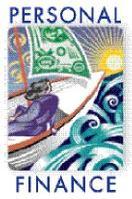Hopeton Morrison, Contributor
YOU CAN do your children a very big favour by teaching them about personal financial planning early in their lives. Below are some golden rules for teaching your children about money adapted from the May 2003 issue of Smart Money (the Wall Street Journal magazine of Personal Finance)
AGE THREE-FIVE:
KEEP IT CONCRETE
You are advised to use cash around children in this age group as they just cannot understand plastic. They will see you place a card into an ATM and collect wads of thousand-dollar bills. At this stage, they just cannot conceptualise that the money coming out of the ATM is either borrowed or will have to be paid for by some form of deposit.
AGE SIX:
MAKE ALLOWANCES
The dilemma that many parents face here is whether allowances should be a reward for doing household activities or for attaining excellent grades at school or for something totally unrelated to either.
It is ill-advised, however, to tie allowances in this manner as your children can simply chose to ignore your allowances while opting out of household activities or just not engage in any effort to improve their grades.
Giving your children an allowance at age six teaches them that money involves the choice of either keeping it or spending it. Give them the money weekly at this early stage.
Later, when they get to the mid-teens you should sit with them, work out a budget and base their allowance on that.
AGES NINE-10: BUDGET TIME
Introduce the household budget here. The inevitable result is that you will find more understanding children who make less money demands on you. Introduce concepts such as the risk/reward equilibrium (that is higher risk equals higher potential returns and vice versa) and if you have not yet opened a savings account for them this is the time to do it.
AGE 11: UP THE ANTE
Your child is now into the sixth grade. Time to introduce highly esoteric topics such as the stock market. Your child should be reading the financial pages at this time whether it's through newspapers or online.
With all of this knowledge, help them to start purchasing stocks as a tool of long-term investment. Teach them the value of investing and the power of compounding in long-term investments.
AGE 12: FOSTER RESPONSIBILITY
Move allowances to twice a month now.
If possible, encourage your children to identify ways and means of earning some money for themselves such as working part time in a family business, bagging groceries at a neighbourhood supermarket if possible and so on.
AGES 13-15:
BUILD ON THE BASICS
This is the time to introduce instruments such as local registered stocks, treasury bills, government and private debentures and international bond instruments.
Research local and international stocks with them, especially those that would gain some traction such as Disney and the parent companies for games such as Pokemon and Game Boy.
Introduce them also to the local blue chips that are easily recognisable from the daily business news.
Additionally, it is time for you to introduce them to plastic. The obvious question is why would you want to introduce a 13-year- old to his or her own credit or debit card?
The answer is that if you don't, your 13-year-old becomes a 19-year-old teen in university that cannot resist the compulsion to just blow your hard-earned money on his or her first credit or debit cards.
AGE 16-18: LOOK
TO THE FUTURE
Time to introduce retirement planning. Many persons find it astonishing that a parent could be introducing a retirement account to a child that has not even started to work.
But this is precisely the point. The reason why persons work is first to provide for a reasonably decent and comfortable standard of living while attaining financial independence in life. Purchase a long-term savings account, Golden Harvest, or any instrument that starts him or her on the road to retirement.
Contribute the funds yourself where necessary, however little it amounts to, in an effort to convince him or her of just how immediate the business of retirement planning is.
Hopeton Morrison is general
manager of St. Thomas Cooperative Credit Union Ltd. and lecturer in the School of Business Administration at the University of Technology. Please send comments and questions to: hmorrison@stccu.com.

